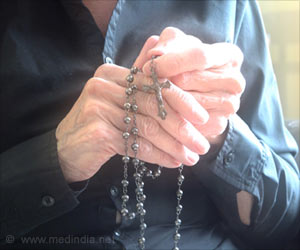
‘Do you restrict your children from social gatherings to focus on studies? Maybe you are wrong! Participating in social gatherings actually broadens their mind and helps in sharing ideas.’
Tweet it Now
To analyse how spiritual well-being impacts adaptation to crisis, experts with West Bengal Public Health and Administrative Service and All India Institute of Hygiene and Public Health chose third semester medical students in government medical colleges of Kolkata for the survey-based study."The results showed the coping skills and hence the spiritual health of medical students were greatly influenced by the education of the father. The better the father is educated, the better the students dealt with crisis during their stressful undergraduate days," Shibotosh Sen, medical officer with the state's public health and administrative service, told IANS.
"Spiritual health goes beyond spiritual and religious practices and is actually a reflection of one's control over emotions and the situations they are thrown in," Sen explained.
The study was published in the Indian Journal of Public Health and was conducted among 362 medical students of Medical College, Nil Ratan Sircar Medical College & Hospital and R.G. Kar Medical College & Hospital.
However, in a rather puzzling observation, a reverse trend was seen in education status of mothers: students whose mothers were comparatively less educated coped better.
Advertisement
"Conflicts in the workplace are usually better managed by more educated individuals. They can avail of resources like technology and other services, whereas those with limited means and education relied on their inner strength to adapt to difficult situations and this is imbibed by their children," Sen said.
Advertisement
"Usually the tendency for students is to isolate themselves from any social activity to focus on studies. But being part of the social milieu and participating in gatherings broaden the mind and help in sharing ideas. Even annual rituals and family traditions show family support," he said.
Sen concluded that examining and harnessing the interplay of these factors can boost the medical students' spiritual health and make them better caregivers. "Also, augmenting coping skills can go a long way in preventing depression and general anxiety disorder among adolescents," he said.
Source-IANS












